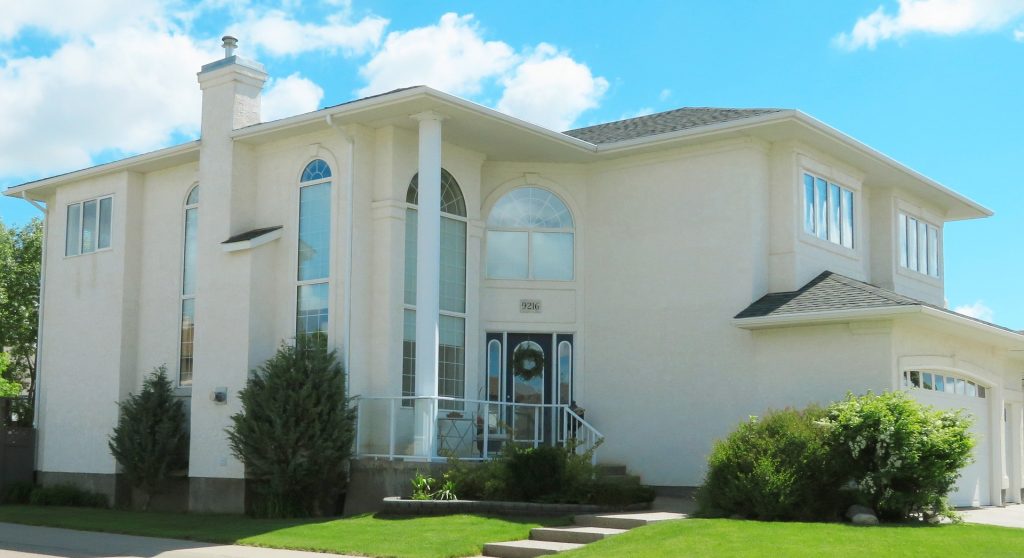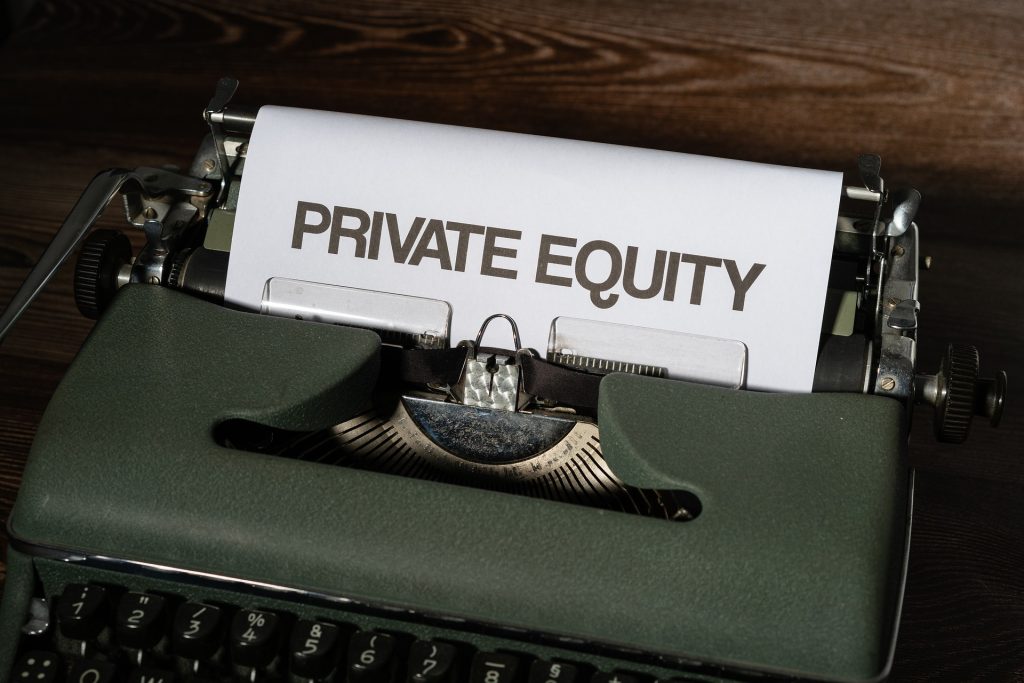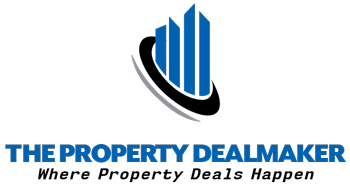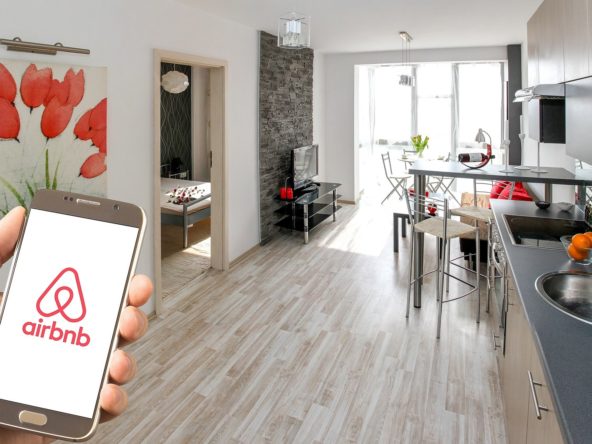Wondering how to finance investment property in South Africa? This article covers the various options available to you on
growing your property portfolio and building long term wealth.
Property is the asset class where most of the wealthiest people place their wealth for long term growth and wealth preservation.
There is no doubt that the property as an asset class has stood the test of time as a stellar long term investment.
As an investment, property provides a stable cash flow stream, provided it has been purchased in the right location and has been well maintained to ensure minimal vacancies.
Over the long term, it has been proven time and again that property has outperformed almost every other asset class. So it explains why so many people are eager to grab their own slice of the pie by building their own passive income machine, whether its for an early retirement plan or a long term retirement plan.
Challenges On How To Finance Investment Property
While property is a great asset class, it can seem to be out of reach for the majority of South Africans due to the large capital requirements
Typically a property purchase will include not only a deposit, but also legal costs and possibly renovation costs.
Another other challenge is raising the bond from a bank. The South African banking system tends to favour very traditional lending practices making it very hard sometimes to obtain funding for entrepreneurial ventures.
But while one may be dismissive of these lending practices, the goal should be to find ways to work with them as opposed to challenging them. Play the hand you’re dealt is the way to get over the hurdle.
Types Of Property Investments
Before we get into the the options on how to finance investment property. It is important to clarify the types of property investments you might be considering because this also affects how you raise finance as well.
Residential Property

Residential property investments can include the following types of buildings which can be rented out for income:
1. Sectional Title Apartments (Flats) and Townhouses
2. Freehold Houses
3. Small Student Accommodation / Multi Let homes
Commercial Property

Commercial properties are made up of a range of property types that can include the following:
- Mixed use properties (shops and flats),
- Blocks of flats or entire townhouse complexes
- Retail shopping centres of varying sizes
- Industrial property
- Office buildings
- Large student accommodation facilities
- Fuel station properties
- Affordable and Social Housing Developments
- Educational Properties (Private Schools)
- Retirement Housing
- Hospitality (Hotels. Guest Houses, B&Bs)
- Healthcare Facilities (hospitals)
- Self Storage units
CASH FLOW – CASH FLOW – CASH FLOW

When it comes to the question on how to finance investment property in South Africa or anywhere for that matter, the driving factor above all else is always CASH FLOW.
Sometimes it is clear how you could increase the cash flow of the property. But often it requires skill, vision and creativity.
The bottom line is that if you can show funders that the property will be a good cash flow investment, you improve your chances of raising finance.
How To Finance Investment Property – The Options

First we will discuss the equity options to fund investment property since this is often the biggest stumbling block for most would-be property investors
EQUITY FUNDING
Equity finance is any form of funding that does not require immediate or short term repayment. This is longer form funding where the equity provider may only expect repayments to begin in after 5 years or more.
Although this can vary on a deal by deal basis. In most cases equity funding is unsecured. For this reason equity funding is also normally the most expensive type of funding. So the equity provider requires a higher return for taking on higher risk and being willing to wait longer for repayment.
Ideally the equity portion of the property’s funding structure should be around 20% to 50%.
The ideal scenario however is that the majority of the funding should be raised from debt and other providers
1. Own Cash
Using your own cash reserves is normally the easiest route to getting into property investing. This could come from savings, other investments or businesses or inherited money. Using your own cash should however be seen as the most expensive kind of equity funding.
The reason for this is the TIME it takes for you to save and accumulate cash resources. Your time is your most valuable asset and you gave it up to rake together enough cash to invest in your future. So the return you should expect from that hard earned cash must be higher than any other type of funding.
This is the reason most experienced property investors use as little to none of their own cash when making investments and try to secure the highest possible loan from debt providers.
What this means is that even if you do have your own cash to invest into a property deal, your goal should always be to invest as little as possible of your own cash and try to secure the highest possible loan amount from debt funders, provided the property’s cash flow can safely carry the loan.
2. Equity in Home Loan
If you’ve been a homeowner for any significant amount of time, you’ve probably paid off a large amount of the debt on the house. This means you have home owners equity and one of the cheapest sources of funding you can find.
Houses are normally funded at interest rates below the prime lending rate which provides you with a low cost of investment funding. Simply approach your bank and request them to refinance your home and add an access facility so you can withdraw and pay cash into the loan whenever you need to.
3. Seller’s Equity

One of the most overlooked forms of funding for property deals is sellers equity.
What does this mean?
Seller’s equity is basically an arrangement with the seller of the property to retain an equity share in the transaction. This can equate to as little 5% of the purchase price to as much as 50% or even higher depending on the transaction.
The question probably comes to mind, as to why a Seller would agree to this arrangement. However the real question should be how you can make it worthwhile for the seller to keep equity in the deal.
This requires some creativity on your part and depends on how you plan to add value to the property, which ideally should equate to higher cash flow in the property.
If you can show the seller that the value of the property will be enhanced or that he/she will stand to make more profit at a later stage, they will be more willing to consider your request that they retain equity in the deal.
The benefit of having the seller retain equity in the property means that you automatically have a “deposit” paid into the deal without using your own cash.
Sellers equity is a brilliant mechanism for doing property deals without injecting much or any of your own cash.
4. Private Investors and Private Equity
Another avenue for potential equity funding is private investors and private equity companies.
Private investors could be family members, friends, work colleagues or even people you meet at events or online. These people still need to see the value of your proposal and how it will benefit them and most importantly, whether you can execute the plan so that they will not lose their money.
Essentially you are asking other people to risk you money in your property investments in return for making more profit in the investment than what they could potentially earn in another investment.
TRUST is of paramount importance when it comes to using other peoples money. You are essentially becoming a custodian of their money and you thus have the responsibility to fulfil this obligation by doing your best to make sure the investment is profitable and that everyone will their money back, plus profit.
Private equity companies are investment houses that collect money from wealthy individuals and have the responsibility to invest those funds in profitable ventures. Some private equity firms specialize in just investing in property investments which they believe will create value for their clients.
Most private equity companies will however only invest in very large projects often in excess of R30m or more.
So these funds are not ideal for small investors. In addition, most PE firms expect their funds to be repaid within 36 months, which can be challenging in the property game.
Hence PE is sometimes best suited for large scale residential developments where the units will be built and sold off within 12 to 24 months as the cash flow comes in much sooner compared to long term investments.
DEBT FUNDING

Debt funding is typically funding that has fixed repayment terms, with monthly obligations and mostly secured through the property itself and sometimes additional security if the debt funder requires this.
Preferably debt funding should make up at least 50% to 80% of the funding structure if possible. The properties current and future cash flow will largely determine the ideal funding level.
Your job should be to package the deal in such a way that the property’s location, quality and cash flow will make it an attractive investment to the funders you plan on approaching.
Term of Funding
When it comes to debt funding for residential properties are funded on 20, 23 or 30 year loan terms. This is provided mostly by the traditional banks through their home loans divisions.
On commercial properties, the funding is provided on terms ranging from 5 to 10 years, with some debt providers offering up to 15 year loan terms (at a higher price/interest rate)
Most debt facilities will provide 50% to 75% of the purchase price or development value of the property. The driving factor however is always the cash flow.
So while a debt provider can offer a 75% loan, if the cash flow of the property can only support 60%, then the funder will limit funding to 60% to ensure your building can repay the debt.
Your focus should thus be on buying the property at a good price and working on ways to increase the cash flow so you can request a higher loan from the debt provider.
Mezzanine Funding
According to Investopedia: “Mezzanine funding is a hybrid of debt and equity finance that gives the lender the right to convert the debt to an equity interest in the company in case of default”
Mezz funding as its called is normally more expensive than debt funding but still a bit cheaper than equity funding.
Mezzanine funding is often used to “plug the gap” after obtaining the debt and equity funding. So if you manage to raise a lower level of debt or equity and you are still short of funds, a Mezzanine funder can assist in plugging this gap.
Mezz funding however is also typically offered on much larger sized deals and some funders will not consider funding small projects. Nothing however stops you from asking private investors to offer you mezzanine funding.

Mezz funding normally makes up around 5 to 20% of the funding structure due to the cost and short term nature on the funding. So it should be used with caution.
Where and How To Finance Investment Property
As we kick off the PLACES on how to finance investment property in South Africa.
It is important to note that if your knowledge and skill is limited in putting together a compelling business case and structuring the deal in a way that will make it appealing to funders.
Your best bet to is to seek the assistance of property professionals, advisors and consultants, who can assist you in structuring your deals.
This will make the capital raising process much easier and improve your chances of raising the necessary funds to execute your property investment project
Expert guidance could mean the difference between success and failure in this game.
Think of these professionals as your navigators on a ship, who help steer you in the right direction to you don’t sink before you get to your destination.
Having said that, it is also important to make sure you make it a point if improving your own education so you understand how to assess property deals. Eventually you will then reach a point where you can assess and structure your own deals.
But seeking the advise and counsel of attorneys and property specialists is always a worthwhile investment to ensure success.
How To Finance Investment Property: Who Are The Debt Funders?
Banks are the largest providers of debt funding in the country with the Big 4 leading the way in both the homeloan and commercial property space.
As we go through the various institutional funders we will also point out where lenders offer not just debt, but also equity or even mezzanine finance on selected deals.
Residential properties like townhouses and free standing houses are usually funded through the homeloans division of the financial institution.
The funding terms are usually between 20 to 30 years
One of the biggest negatives however is that banks use a scoring model to assess the credit request and thus follow a lending approach that does not really suit property investors. Normal homeloans are provided on the basis of the individuals salary and not the properties current or future cash flow.
In many cases banks only take 50 to 60% of the rental income into account when assessing a homeloan. But expect your salary to be the driving factor in determining whether you qualify for a loan or not. Interest rates on homeloans are normally more favourable than commercial property loans.
In contrast, the commercial property division of banks takes 100% of a properties rental income into account and places less reliance on the persons salary to repay the loan.
On the negative side, commercial property loans are offered on shorter terms of mostly 10 years and the size of these deals can place some deals out of reach for some investors, IF they don’t know how to execute larger deals.

ABSA
Homeloans
ABSA offers loans with terms up to 30 years through their homeloans department.
Commercial Property Finance
ABSA has a separate commercial property finance division that can assist on everything from industrial, retail, office, student accommodation and including large scale affordable housing projects
Nedbank
Homeloans
Nedbank offers loans through through their homeloans division as well
Commercial Property Finance
For years Nedbank has boasted the largest commercial property finance book and offer debt facilities across all spectrums of the commercial property market
Equity and Mezzanine Finance
For select deals, Nedbank also offers equity and mezzanine funding through their Property Partners division. These products often run alongside the banks debt facilities provided on commercial property deals.
FNB / RMB
FirstRand offers homeloans and commercial property finance through the FNB brand on similar terms to the other big banks
The RMB division looks at commercial property debt funding on much larger deals, typically above R100m in size
Standard Bank
Standard Bank offers homeloans with terms up to 30 years through their homeloans division
Commercial property funding is provided through the banks commercial property finance division
Investec Bank
Investec tends to service individuals with higher earnings and provides homeloans to this market
The bank also offers commercial property finance on larger deals and does tend to be very creative in their funding offering. But it does come at a price
Mezzanine and Equity Funding
Investec also offers equity and mezzanine funding on selected commercial property deals that have the potential to be very profitable.
Capitec / Mercantile Bank
Capitec bank began offering homeloans only recently and competes with the larger banks on similar funding terms
Commercial property finance is provided through their Mercantile Bank division, which tends to be more favorable to smaller players just entering the commercial property market.
Grindrod Bank (now a division of African Bank)
Grindrod offers commercial property finance like the bigger banks but made their name predominantly in the Mezzanine funding space.
They have a preference for mezzanine facilities, which are higher risk, but much more profitable. In recent times however they are becoming more aggressive in the traditional commercial property finance debt space.
Sasfin Bank
Sasfin is a well established bank that has been around for years.
They provide commercial property finance loans as well as specialized funding like Mezzanine finance for retail properties, residential developments and rental projects, industrial, student accommodation, social housing and healthcare and filling station projects.
Bidvest Bank
While being a smaller player, Bidvest Bank does offer commercial property finance across all sectors within the commercial property space
SA Homeloans
SA Homeloans is a big player in the Homeloans space and was one of the first funders to offer loans longer than 20 years.
SA Homeloans Development Finance
It is not well known that SA Homeloans also has a division that provides funding for large scale residential developments like rental projects, social housing developments and student accommodation.
How To Finance Investment Property in South Africa – Using SPECIALISED Lenders
Specialised Lenders are institutions that are not banks per se but provide niche funding for certain types of property investments and developments.
They are usually more expensive because they tend to take on more risk than traditional banks but are sometimes easier to talk to and can be more willing to assess new property investors with good opportunities.

TUHF
TUHF provides funding in the residential and student accommodation market with a focus on inner city developments and more recently township developments.
Their focus tends to be on residential stock (blocks of flats) in the large metropolitan areas like Johannesburg CBD, Pretoria CBD, Cape Town CBD and Durban CBD.
They also favour student accommodation projects
What makes TUHF an appealing choice is that they offer loan terms of up to 15 years as compared to the 10 year loan terms offered by other players. This longer term funding does however come at a price of around Prime plus 3%.
Westbrooke Alternative Asset Management
Westbrooke is a private equity firm specialising in debt, equity and mezzanine funding
They focus on providing funding for LARGE scale residential rental stock, hospitality (hotels) and student accommodation. They will typically only consider funding in excess of R30m.
Old Mutual Alternative Investments (OMAI)
OMAI provides debt and equity funding on large projects.
Their focus is on property investments in Education (schools), housing developments, retirement accommodation, rental stock and student accommodation
Trinitas Private Equity
As the name suggests, Trinitas is a private equity company that invests in management teams as opposed to just properties.
The have a focus that extends beyond just property funding but rather provides funding to property entrepreneurs with solid track records.
They invest equity into their chosen investments and will usually only look at deals where they can invest R50m to R150m per transaction.
Fedgroup Property Finance
Fedgroup offers commercial property finance up to 75% and will also consider interest only funding where the deal merits it
They will consider funding most types of commercial properties and are a good choice for new investors with good property deals.
Business Partners
Business Partners offers a commercial property finance for loans as low as R500,000 to a maximum of R50m
The great thing about Business Partners is that they can consider loans up to 100%, provided certain terms and conditions are met.
They will consider all types of investment property transactions, but not residential homeloans where the property is for own use.
This means you can also raise funding for smaller investment property deals like adding cottages to an existing rental property.
Loan Term
Loan terms are also up to a maximum of 10 years.
Al Baraka Bank Property Finance
Al Baraka Bank offers financial products that cater to the Muslim community where interest based loans are not permitted.
Instead the deals are based on a profit share model.
The bank also offers development finance so you can apply to them for funding to build blocks of flats for rental income.
Their commercial property finance product is offered for up to 10 years with fixed monthly instalments.
They will fund most types of commercial property as listed in this article.
Ithala
Ithala is a KZN based funder that provides commercial property finance for industrial properties, student accommodation, hospitality properties (ie. hotels, B&Bs) and residential developments.
Futuregrowth Asset Management
A division of Old Mutual, Futuregrowth operates as a private equity firm that also focusses on investing in companies building property portfolios.
They fund debt, as well as equity and have been shown to favour retail property acquisitions that can meet their required returns
How To Finance Investment Property – using Government Agencies

Government Agencies
Government funding agencies are institutions set up by the South African government to drive growth and development in the country
Some of these institutions have a mandate to finance property projects and they can offer more favourable terms in most cases.
Gauteng Partnership Fund (GPF)
GPF offers commercial property finance in the Gauteng region with a focus on residential developments, affordable rental stock and student housing
Depending on the fund, they can offer as much as 90% funding on projects with loan terms up to 15 years.
They have various qualifying criteria and thus might not be a suitable choice for some investors.
,
National Empowerment Fund (NEF)
The National Empowerment Fund will finance housing projects, rental stock as well as retail centres
They can provide debt and equity funding, as well as mezzanine funding.
Nurcha / NHFC
The National Urban Reconstruction and Housing Agency (Nurcha) as it was known was merged into the National Housing Finance Corporation (NHFC) in 2018 and the merged entity offers debt and equity finance for the following types of projects:
– Social Housing
– Private Rental Housing
– Affordable Housing
They have various qualifying criteria but are a good choice if you are looking to renovate existing residential blocks of flats for rental purposes or new developments
Social Housing Regulatory Authority (SHRA)
The Social Housing Regulatory Authority (SHRA) has a focus on funding social and affordable housing projects.
They provide debt funding and a product called the Consolidated Capital Grant.
They also have very strict qualifying criteria but offer a funding solution that can make it much easier to break into the commercial property space..
Private Lenders
Private lenders are typically individuals you may know or my not yet know. As opposed to providing their cash on an equity basis where there is no fixed repayment terms, some individuals might decide to rather offer you a loan, at a pre determined interest rate over a certain loan term.
These investors can serve an important purpose to get your first deals off the ground, without having to approach institutional debt providers.
Then, once you’re making money on the property you can approach a normal bank and request funding from them, which if granted, you can use to pay off the more expansive funding from the private lenders.
Conclusion: How To Finance Investment Property in South Africa
The finance of investment property in South Africa offers numerous options from various players in the market.
What drives the funding is ultimately the quality of the project being proposed, the person/people behind the deal and the cash flow of the property.
With all the funding options out there as shown in this article, the problem should not be on how to finance investment property, but rather the sourcing of attractive opportunities.
Money always follows good investment opportunities. And good investment opportunities are not normally obvious when looking at a potential deal.
This is where your vision, education, experience and skill come in.
But once you find ideal investment property opportunities and put together a good business case for the deal, there are many options available to you to fund the investment and move toward your goal of passive income and wealth creation.

Aslam is from Johannesburg, South Africa and graduated with a BComm degree from the University of South Africa and followed that up with a BComm Hons degree in Finance and Investments.
He has spent over 18 years in the financial services sector, with 12.5 years in the commercial property finance arena with 3 of the major banks in the country.
His specialty being deal structuring and finance solutions for commercial property investors and developers across the commercial property sector, including large scale retail developments, high density residential investments , industrial and office property.
Aslam was also a fast food franchise investor for 7 years, is experienced in digital marketing and online lead generation and has owned and managed multiple residential properties.





